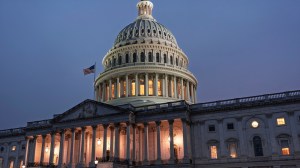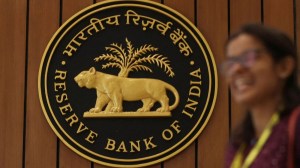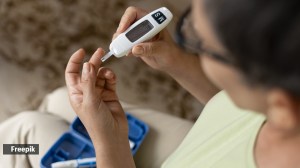Scientists warn against blood tests for TB,say inaccurate
Blood tests don't accurately diagnose tuberculosis,WHO warns against antibody-based tests.
Blood tests do not accurately diagnose tuberculosis,according to scientists who earlier this month published two papers online in PLoS Medicine.
The World Health Organisation (WHO) has issued a policy statement advising countries against the use of antibody-based commercial blood tests for the diagnosis of active TB,says study author Madhukar Pai,associate professor at McGill University,Canada. This is a subject of discussion in a conference that began in Bangalore on Thursday.
Misdiagnosis is a hurdle for effective control of the global TB epidemic,Pai says. Unfortunately,we still do not have an accurate point-of-care test for TB,as we have for HIV or malaria, he says. The WHO policy strongly encourages future research to develop novel or improved serological tests, he adds. Options other than blood tests include a sputum-based test and a modern,DNA-based one.
No policy has ever recommended serological (antibody) tests to detect active TB; yet dozens of these blood tests are currently marketed in developing countries where regulation is weak,Pai says. Dr Ashok Kumar,project director of the Revised National TB Control Programme,concedes that an estimated 1.5 million TB serological tests are done in India every year at an expenditure conservatively estimated at $15 million.
A WHO expert group had reviewed the evidence presented by researchers Pai and others on TB serological assays. Based on its recommendation,in July 2011,WHO published the policy statement on commercial sero-diagnostic tests for TB. Results showed that replacing sputum microscopy with serological testing would result in an estimated 14,000 additional cases of TB diagnosed but also 121,000 additional false-positive diagnoses relative to microscopy.
Pai and Dr Karen Steingart of the University of Washington School of Public Health,Seattle,performed a systematic review and meta-analysis of 92 studies evaluating the diagnostic accuracy of commercial serological tests for pulmonary and extra-pulmonary TB (where the infection affects parts of the body other than the lungs) with focus on their relevance in developing nations. They concluded that the accuracy of serological tests is very low for both forms of TB.
The second study,with Dr David W Dowdy from Johns Hopkins University School of Public Health,Baltimore,as first author,details a cost-effectiveness analysis of serological testing versus other diagnostic techniques in India. The authors found that if used as an initial TB test among adults in India,serology results in more suffering,premature death,more secondary infections (due to false-negative results) and more false-positive diagnoses than sputum smear microscopy,while increasing patient costs. They suggested that microscopy plus automated liquid culture should be used as an additional diagnostic TB test instead of serology.
We are happy that some countries,like India,have taken the lead by endorsing the WHO policy and issuing advisories against serological tests, Pai said. The big challenge will be to improve regulation and to incentivise private providers to switch to WHO-endorsed TB tests.
The pity is that despite the WHO ban,the Drug Controller and General of India has not stopped import of these (serological test) kits, says Prof Sarman Singh,head of clinical microbiology at AIIMS where,too,researchers have studied the accuracy of an ELISA kit for TB used by many private diagnostic laboratories.
The gold standard of diagnosing TB has been to demonstrate TB germs in a patients sputum and costs Rs 50 to Rs 100,says Dr Dharmesh Patel,chest physician from Vadodara who has now set up the Baroda Chest Group and passed a resolution condemning TB serology tests.



- 01
- 02
- 03
- 04
- 05




























